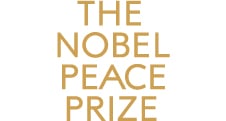Para quem possa ter interesse. / To whom it may concern.
Caros/as Coordenadores/as das Unidades I&D da UC,
Caros/as Gestores/as de Ciência,
A pedido do Vice-reitor para a Investigação e Diretor do Instituto de Investigação Interdisciplinar (IIIUC), Professor João Ramalho-Santos, informamos que estão abertas as candidaturas para a 6ª Edição de financiamento dos "Projetos Semente de Investigação Interdisciplinar", com o apoio da Fundação Santander, promovido pelo Núcleo das Áreas Estratégicas da UC (NAE), em colaboração com o Instituto de Investigação Interdisciplinar (IIIUC).
Com este concurso, a UC pretende continuar a apoiar o desenvolvimento inicial de projetos de investigação originais e interdisciplinares com um financiamento semente que permita aos investigadores e às investigadoras da UC tornarem as suas propostas científicas mais robustas, de forma a assegurar financiamento competitivo no futuro e o desenvolvimento de novas linhas de investigação que cruzam áreas do saber na Universidade de Coimbra.
Irão ser financiados até cinco projetos de investigação interdisciplinar, uma em cada Área Estratégica da Universidade de Coimbra: Saúde; Clima, Energia e Mobilidade; Recursos Naturais, Agroalimentar e Ambiente; Digital, Indústria e Espaço; Património, Cultura e Sociedade Inclusiva.
Poderão concorrer a este financiamento investigadores/as integrados/as nas Unidades I&D (ou noutras estruturas da Universidade de Coimbra) que desenvolvam investigação na UC e que obtiveram o doutoramento após 1 outubro de 2014. A equipa do projeto deve incluir de três a seis Investigadores/as da UC, de pelo menos duas Unidades I&D de domínios científicos distintos.
As candidaturas podem ser submetidas até 6 de dezembro de 2024, às 17h na página web do concurso:
https://www.uc.pt/iii/iiiuc-apoia/seedprojects-uc/edicao-2025/
Estão disponíveis nesta página as normas do concurso, modelo para submissão de candidatura e a lista de júri nomeado para esta edição.
Atenciosamente,
O Núcleo das Áreas Estratégicas
Isabel Neves
Maria João Neves
Natacha Leite
Shiva Saadatian
*******************
On behalf of the Vice-rector for Research and Director of the Institute for Interdisciplinary Research (IIIUC), Professor João Ramalho-Santos, we would like to inform you that applications are now open for the 6th edition of "Seed Projects for Interdisciplinary Research", with the support of Santander Foundation, promoted by the UC Strategic Areas Unit (NAE), in collaboration with the Institute for Interdisciplinary Research (IIIUC).
Through this call, the UC intends to provide support for the initial development of original and interdisciplinary research projects with seed funding that will allow UC researchers to make their scientific proposals more robust, ensuring competitive funding in the future and the development of new research lines that cross areas of knowledge at the University of Coimbra.
There will be funding for up to five interdisciplinary research projects, one in each of the UC Strategic Areas: Health; Climate, Energy and Mobility; Natural Resources, Agri-food and Environment; Digital, Industry and Space; Heritage, Culture and Inclusive Society.
Researchers of the R&D Units (or other structures of the University of Coimbra), who carry out research at the UC and who obtained their doctorate after 1 October 2014 are eligible to apply for this funding. The project team must include three to six researchers from the UC, from at least two R&D Units in different scientific fields.
The applications can be submitted until 6 December 2024 at 5pm on the call website:
https://www.uc.pt/en/iii/iiiuc-supports/seedprojects-uc/2025-edition/
The call guidelines, proposal template and the list of juries appointed for this edition are available on this page.
Yours sincerely,
Strategic Areas Unit
Isabel Neves
Maria João Neves
Natacha Leite
Shiva Saadatian
Universidade de Coimbra • Reitoria • Administração | University of Coimbra • Rectory • Administration
Serviço de Promoção e Gestão da Investigação | Research Management Service
Núcleo das Áreas Estratégicas | Strategic Areas Unit
Polo I | Rua Larga • Edifício da FMUC (1º piso) • 3004-504 COIMBRA • PORTUGAL
Polo II | Casa Costa Alemão • Rua Dom Francisco de Lemos • 3030-789 COIMBRA • PORTUGAL
https://www.uc.pt/spgi/nae/













 orcid.org/0000-0002-0192-8965
orcid.org/0000-0002-0192-8965

